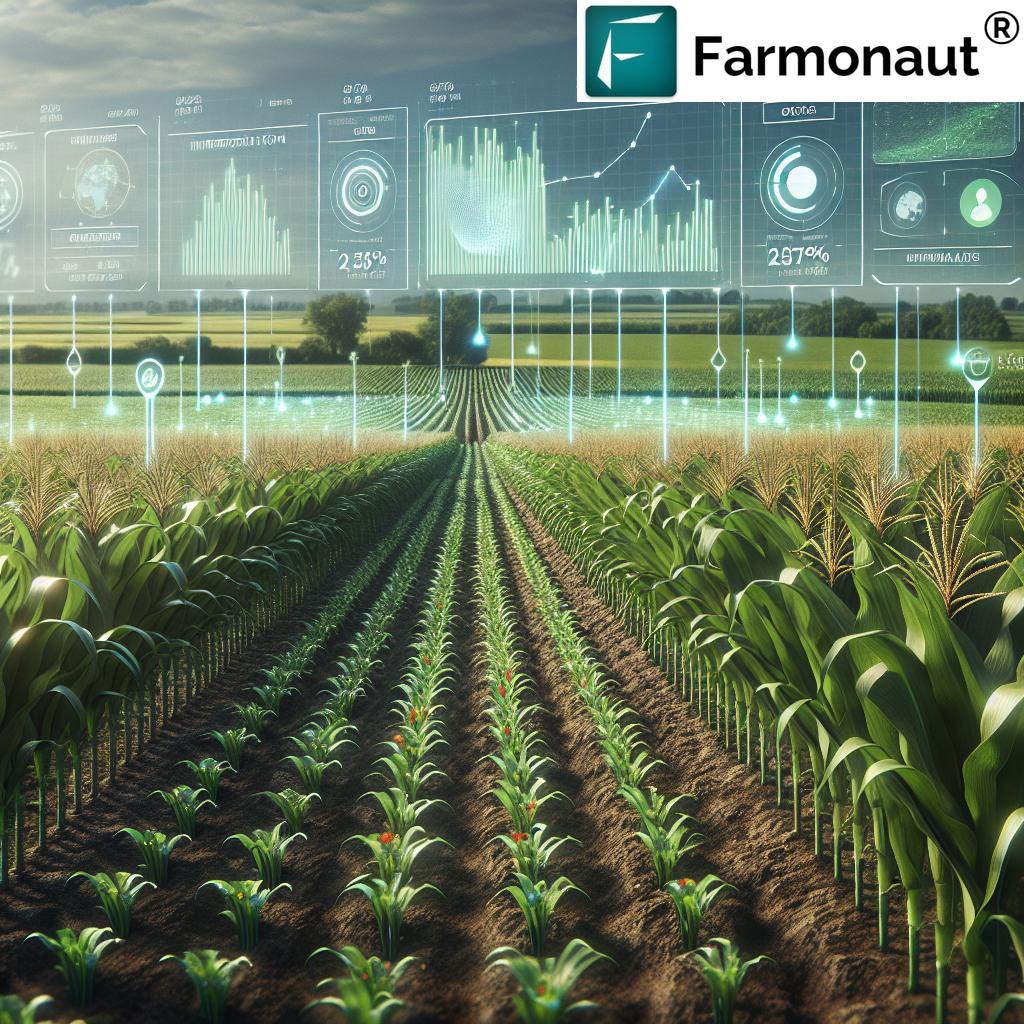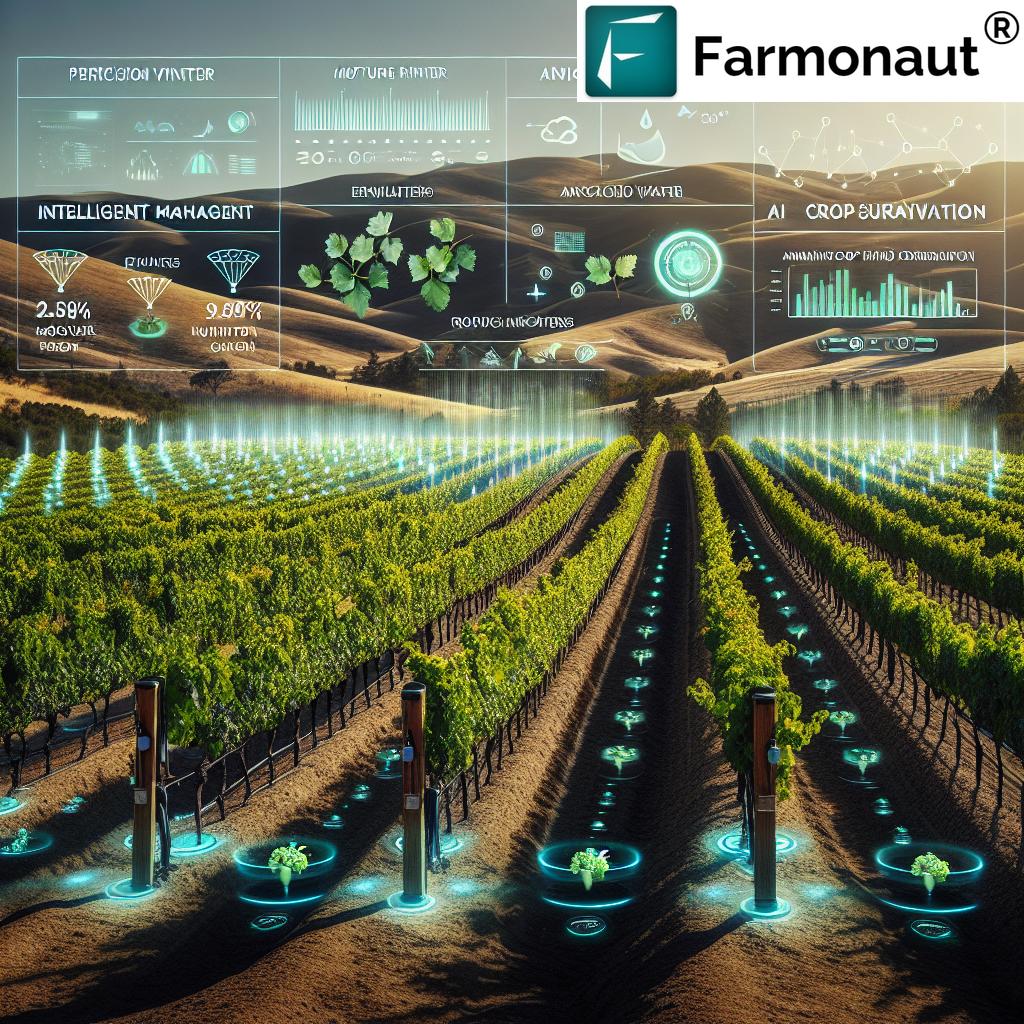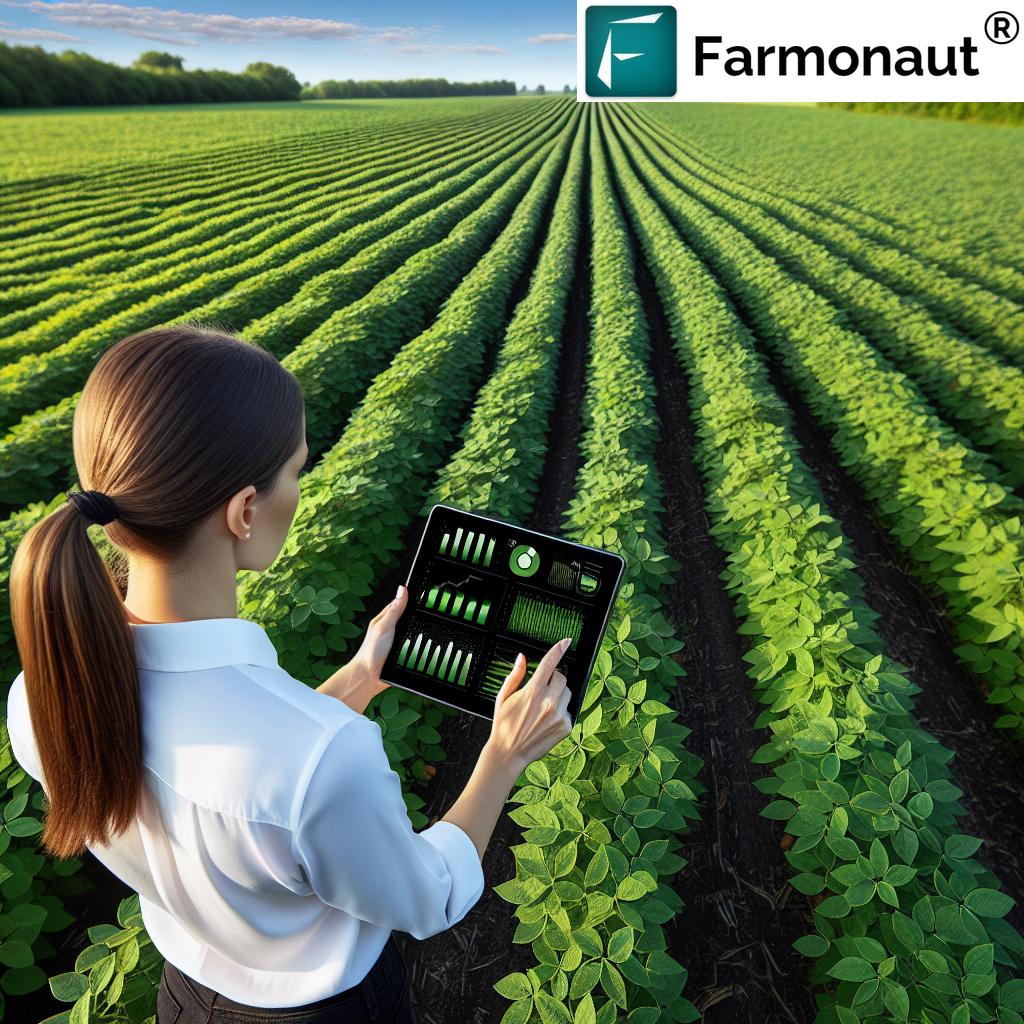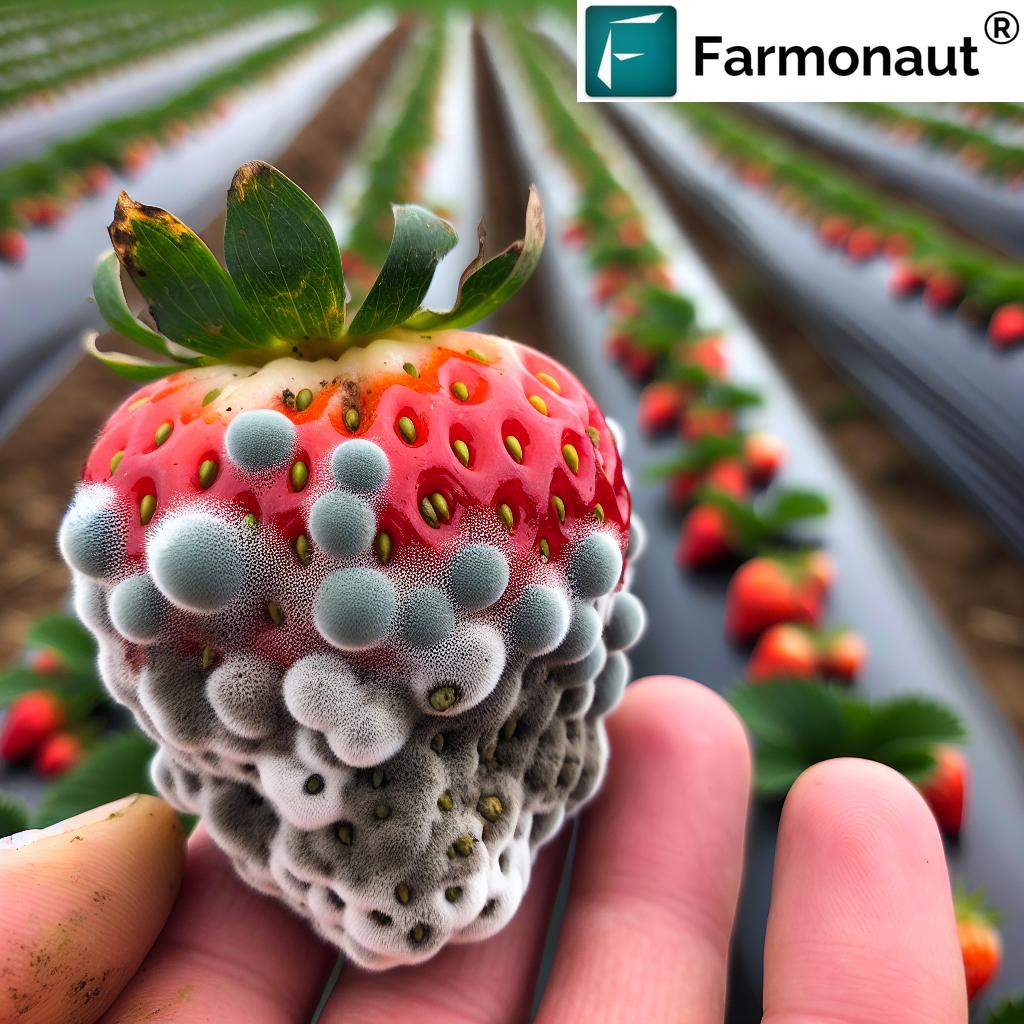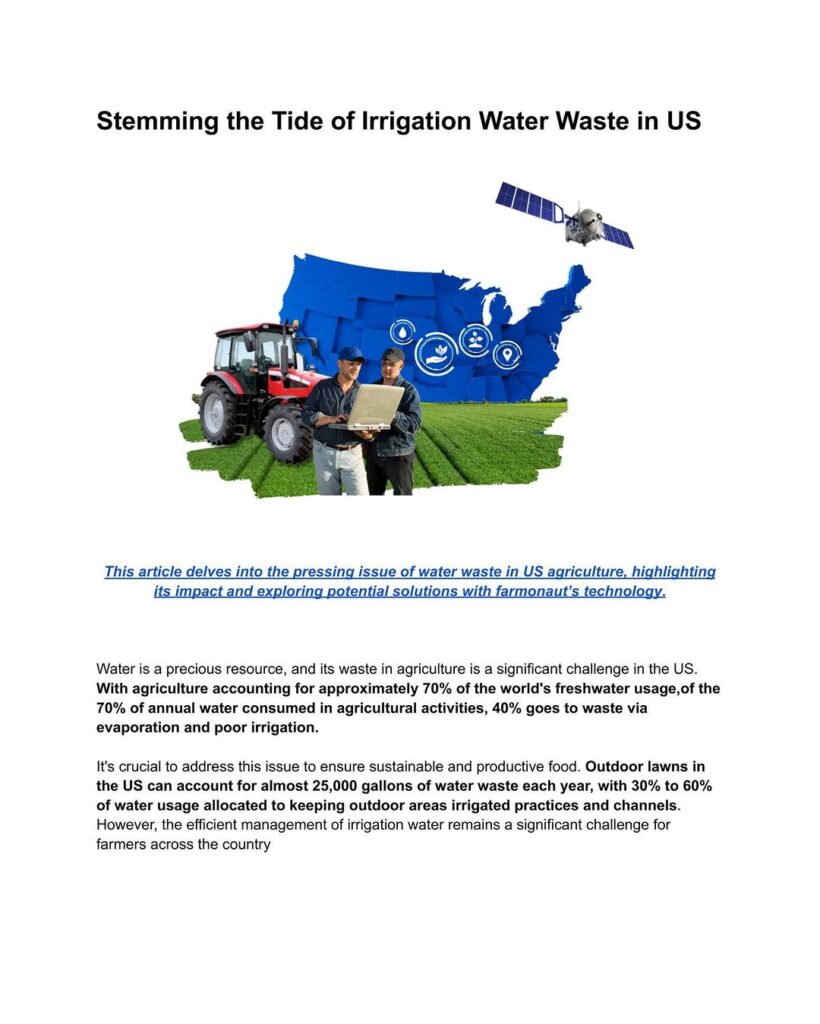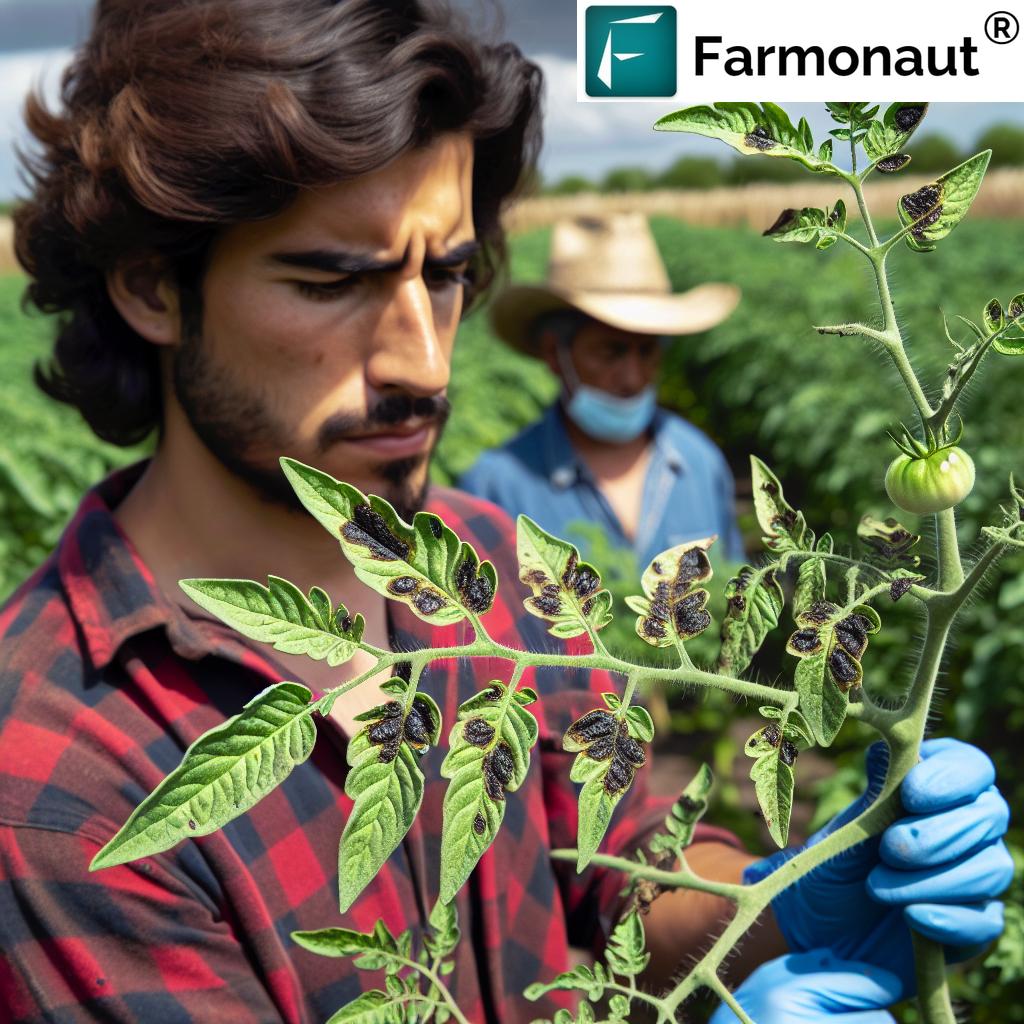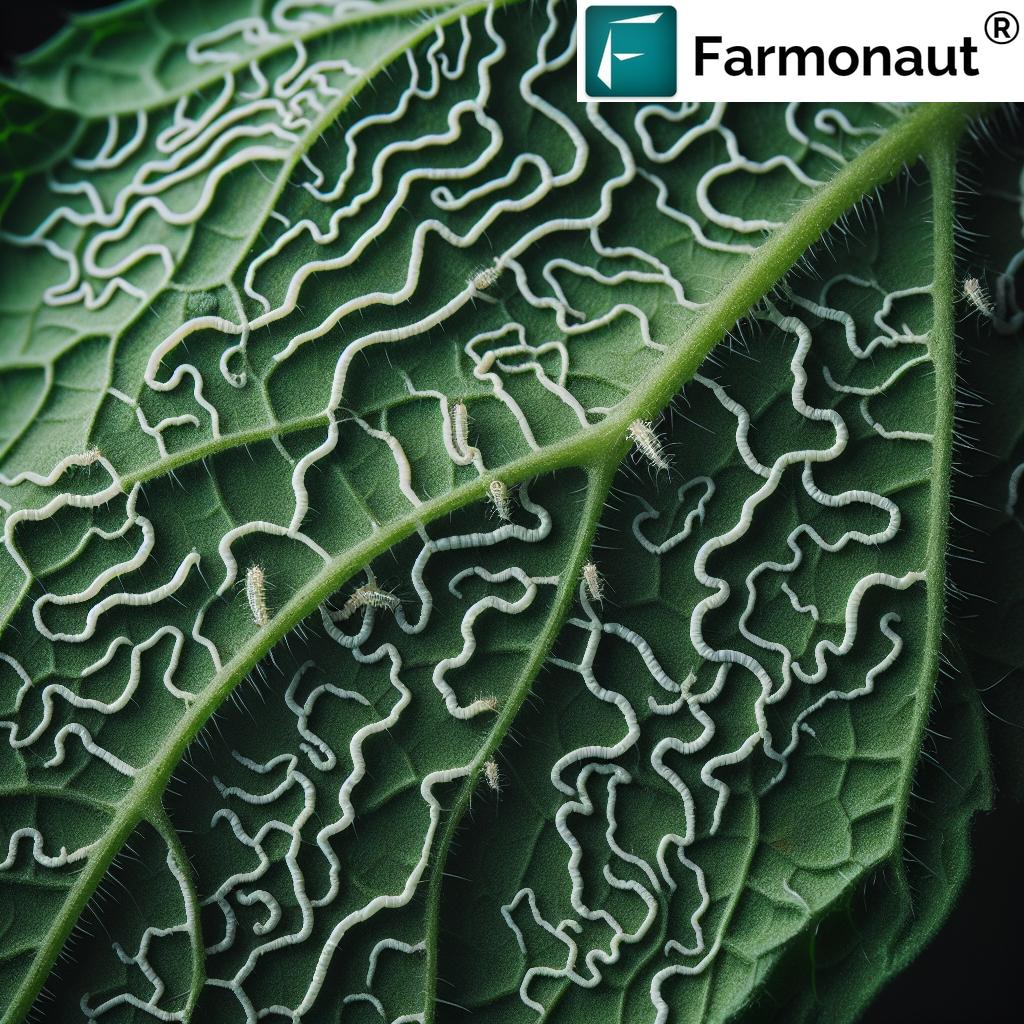AI for Yield Optimization: 7 Precision Farming Trends
“AI-driven precision farming can increase crop yields by up to 30% through optimized irrigation and data-driven decisions.”
Table of Contents
- Introduction: Revolutionizing Yield Optimization with AI
- Precision Agriculture and AI Integration
- Trend 1: Smart Irrigation Systems
- Trend 2: Optimized Fertilization with AI
- Trend 3: AI Crop Health Monitoring
- Trend 4: Predictive Analytics for Yield Forecasting
- Trend 5: Autonomous Farming Machinery
- Trend 6: AI in Greenhouse Management
- Trend 7: Data-Driven Decision Support Systems
- Comparative Trends Impact Table
- Farmonaut: Advanced AI-Powered Farming Solutions
- Challenges and Considerations in AI-Driven Precision Farming
- Frequently Asked Questions (FAQ)
- Conclusion: Shaping the Future of Agriculture with AI
Introduction: Revolutionizing Yield Optimization with AI
Artificial intelligence (AI) is at the forefront of a monumental shift in agriculture, reshaping crop production, resource management, and sustainability. Precision farming techniques powered by AI analyze enormous datasets collected through sensors, satellite imagery, and weather forecasts. This data-driven agriculture enables farmers to make informed decisions, tailored to precise field conditions, ultimately leading to enhanced crop yields and optimized resource use — both critical for addressing global food security and minimizing environmental impact.
As advanced AI-powered farming solutions continue to mature, we are witnessing a transformation across all stages of the agricultural value chain. From smart irrigation systems to predictive analytics in farming, machine learning algorithms are helping us optimize inputs, reduce waste, and forecast outcomes with remarkable accuracy. This blog dissects seven leading trends in AI for yield optimization and how innovators like Farmonaut are making precision agriculture accessible to farmers worldwide.
Precision Agriculture and AI Integration: The Foundation for Yield Optimization
Precision agriculture revolves around the concept of managing field variability and applying resources — including water, fertilizer, and labor — in just the right amount, at just the right time and location. The integration of AI and machine learning technologies in agriculture empowers us to tap into an unprecedented level of detail about soil conditions, crop health, and environmental dynamics.
With the introduction of comprehensive data from satellite imagery, ground-based sensors, and IoT-enabled devices, AI algorithms perform rigorous analysis to detect subtle changes in soil moisture, temperature, plant health, and pest activity. By analyzing these vast and variable conditions, AI systems enable farmers to make data-driven, site-specific decisions — shifting agriculture from intuition-led to evidence-based.
Trend 1: Smart Irrigation Systems
Optimizing Water Management for Higher Yields and Sustainability
Smart irrigation systems are among the most impactful AI-powered farming solutions in the context of yield optimization and sustainable agriculture practices. By leveraging soil moisture sensors, satellite data, and weather forecasts, these systems use AI algorithms to determine the optimal amount and timing for water application. The benefits include:
- Minimizing water waste and reducing costs, while ensuring crops receive adequate hydration
- Preventing over- or under-irrigation, both of which can lead to yield losses
- Integrating real-time field data with predictive analytics in farming to adapt to changing conditions
- Enhancing resource efficiency and conserving this critical resource
For regions like California, where water usage is under constant scrutiny, the integration of AI-enabled irrigation systems has led to substantial improvements in both crop yield and resource utilization. Growers benefit from precise irrigation management that translates directly to higher productivity and environmental impact reduction.
Trend 2: Optimized Fertilization with AI
Precision Fertilizer Application for Enhanced Yield and Reduced Environmental Impact
AI in agriculture goes beyond simply automating tasks; it revolutionizes how we approach fertilizer usage on farms. By analyzing soil nutrient levels, crop growth stages, and various environmental factors, machine learning-driven tools help farmers fine-tune their fertilizer programs:
- Ensuring fertilizers are applied only where and when needed, minimizing waste
- Reducing the risk of nutrient runoff that causes environmental pollution
- Improving yield outcomes by maintaining optimal soil fertility
- Providing actionable insights through data analysis and AI-powered decision support systems
The deployment of optimized fertilization strategies not only boosts crop yields but supports sustainable agriculture practices by reducing unnecessary inputs and their related cost and environmental impact.
Trend 3: AI Crop Health Monitoring
Computer Vision and Early Detection for Maximum Yield Protection
One of the greatest challenges in agriculture is battling diseases and pests that threaten crop yields. AI crop monitoring solutions, using computer vision and deep learning, have made major strides in this domain:
- Analyze images from drones, field cameras, and satellites to identify early signs of trouble
- Trigger proactive interventions, reducing crop losses by up to 40%
- Minimize pesticide use by directing treatments only to the affected areas, promoting sustainability
- Support farmers to respond quickly, maintaining crop health and improving yields
This trend is transforming field monitoring from manual, periodic checks to continuous surveillance with high precision — enabling farmers to act before problems escalate.
Trend 4: Predictive Analytics for Yield Forecasting
AI Models Delivering High-Accuracy Yield Projections
An essential benefit of integrating AI in agriculture is the ability to forecast outcomes with greater accuracy using predictive analytics in farming. These advanced AI models correlate historical data, present crop conditions, and environmental parameters to provide accurate, early yield estimates:
- Enable strategic planning of harvesting, logistics, and marketing based on predicted outputs
- Support resource management by aligning labor and inputs with anticipated yield
- Optimize crop yield and returns for both smallholder and commercial farmers
- Assist financial institutions with satellite-based crop loan and insurance verification, reducing fraud (Learn how Farmonaut supports crop loan and insurance operations)
Yield optimization is truly maximized when decisions are made ahead of time, using reliable forecasts generated by cutting-edge AI tools.
“Over 70% of farmers using AI report improved resource efficiency and sustainable practices in their agricultural operations.”
Trend 5: Autonomous Farming Machinery
Transforming Operational Efficiency with AI-Integrated Machinery
The rise of autonomous farming machinery marks a breakthrough in how field operations are conducted. By equipping tractors, harvesters, and sprayers with AI algorithms and advanced sensors, these machines can:
- Perform planting, fertilizing, weeding, and harvesting with minimal human supervision
- Increase efficiency and reduce labor costs for both small and large farms
- Identify and remove weeds precisely, reducing the need for chemical herbicides
- Gather data as they work, feeding continuous improvements into decision support systems
- Explore Farmonaut’s Fleet Management Tools for efficient agricultural machinery use and cost savings
With the integration of autonomous farming machinery, productivity surges and resource use becomes even more precise, supporting large-scale commercial operations as well as smaller, resource-limited farms.
Trend 6: AI in Greenhouse Management
Optimizing Controlled Environments for Maximum Crop Yield
In greenhouses and other controlled environments, AI enhances every element of plant growth through real-time monitoring and analytics:
- Computer vision systems track leaf size, coloration, and plant shape to detect diseases and nutrient deficiencies
- AI algorithms continuously adjust environmental parameters, such as temperature, humidity, and lighting
- Reduces losses from disease and stress, ensuring optimal conditions for each crop stage
- Minimizes resource usage while maximizing production — key to sustainable agriculture
This integrated approach is crucial for high-value crops and intensive production, especially as demand for year-round, high-quality produce grows globally.
Trend 7: Data-Driven Decision Support Systems
Empowering Farmers with Comprehensive AI Insights
Modern data-driven agriculture hinges on robust decision support systems that synthesize data from multiple sources including:
- Satellite data (for vegetation health, soil moisture, and crop condition monitoring)
- In-field sensors for real-time environmental stats
- Historical yield records and market trends
- Weather and irrigation management forecasts
These AI-powered decision support platforms — such as the ones integrated into Farmonaut’s solutions — provide recommendations for pest control, irrigation, and fertilization. The outcomes include:
- Optimized input usage and minimized environmental impact
- Higher productivity even in variable field conditions
- Accessible crop-specific expert advice for all farmers
Our platform delivers this intelligence through mobile and web apps, democratizing AI insights for smallholders and agri-businesses alike. For large-scale operations, Farmonaut’s Large-Scale Farm Management App streamlines monitoring, analytics, and decision support across vast geographies.
Comparative Trends Impact Table: AI-Driven Precision Farming
| Trend Name | Core AI Technology | Estimated Yield Improvement (%) | Estimated Resource Savings (%) | Sustainability Benefit |
|---|---|---|---|---|
| Smart Irrigation Systems | Machine Learning, IoT (soil moisture sensors), Predictive Analytics | 5–25% | 10–40% less water | Reduces water usage and protects local water tables |
| Optimized Fertilization | AI nutrient modeling, Satellite Image Analysis | 10–20% | 10–20% less fertilizer | Minimizes runoff, supports soil health |
| AI Crop Health Monitoring | Computer Vision, Deep Learning, Drone Imaging | 10–40% | Up to 30% less pesticide | Early detection, lower chemical usage |
| Predictive Analytics Yield Forecasting | Statistical AI Models, Data Integration | 5–15% | Optimized use of all farm inputs | Reduces over-application, boosts economic efficiency |
| Autonomous Farming Machinery | Robotics, Onboard Sensor AI, Computer Vision | 5–20% | 15–30% less labor, fuel | Reduces greenhouse emissions, soil compaction |
| AI in Greenhouse Management | Sensors, Computer Vision, Automated Control AI | 15–40% | 20–40% resource sav. | Enables year-round sustainable production |
| Data-Driven Decision Support | Satellite Analysis, AI Recommendations Engine | 10–25% | Up to 30% less input waste | Enables holistic, sustainable farm practices |
Farmonaut: Advanced AI-Powered Farming Solutions for Precision Agriculture
At Farmonaut, our mission is to make precision farming techniques — once accessible only to large, industrial operations — available and affordable to farmers everywhere. We accomplish this by fusing satellite-based monitoring, AI-driven decision support, and intuitive mobile/web interfaces:
- Satellite-Based Crop Health Monitoring: Our platform delivers real-time NDVI (Normalized Difference Vegetation Index), soil moisture analytics, and in-depth field variability insights. This empowers farmers to optimize irrigation, fertilizer, and pest management for improved crop yield and resource savings.
- Jeevn AI Advisory System: Harnessing AI and machine learning on top of satellite data, this system provides personalized, crop-specific insights, weather forecasts, and actionable strategies — all accessible via our web, Android, and iOS apps.
- Blockchain-Based Traceability: Our traceability solutions allow agricultural supply chains to guarantee product authenticity and quality, fostering trust from field to consumer.
- Fleet and Resource Management: We enable agribusinesses to monitor and optimize the usage of autonomous machinery, vehicles, and other resources, significantly reducing costs and supporting sustainable scaling.
- Carbon Footprinting: With accurate real-time carbon footprint data, users are equipped to monitor and reduce their operations’ environmental impact, supporting sustainability and compliance with global standards.
- Scalable from smallholders to agribusiness giants: Whether you manage a few hectares or vast plantations, Farmonaut’s services adapt and scale. Discover our crop, plantation, and forest advisory solutions for maximizing productivity and sustainability at every level.
All these solutions are available through transparent, flexible subscriptions and can be accessed via web, Android, or iOS — ensuring data-driven agriculture is always at your fingertips.
Ready to empower your operation with AI? Explore our pricing below:
Challenges and Considerations in AI-Driven Precision Farming
While the rise of AI-powered farming solutions brings substantial benefits, several key challenges remain:
- Access and Affordability: Many smallholder farmers lack the digital infrastructure or financial ability to implement advanced AI systems — making affordability and accessibility primary concerns globally. Farmonaut is dedicated to closing this gap with cost-effective, scalable solutions.
- Data Privacy and Security: With the proliferation of sensors and continuous data collection, securing farm-level data and ensuring privacy become vital — trust and ethical data stewardship are core to successful adoption.
- Digital Literacy: Successful transformation depends on education and farmer training, ensuring users can interpret AI-generated insights and recommendations and implement them effectively.
- Customization for Local Conditions: AI models must be tailored to the specific climate, soil, and crop context of each region, emphasizing the need for adaptable algorithms and region-specific training datasets.
- Integration with Traditional Knowledge: Optimal results are achieved by blending AI analysis with the experience and unique perspectives of local farmers.
Despite these challenges, ongoing advancements in precision farming techniques, cost reduction, and farmer-oriented support systems are rapidly breaking down barriers. As data-driven agriculture becomes the norm, all stakeholders must focus on equitable access, ethical AI, and sustainable impact.
Frequently Asked Questions (FAQ): AI for Yield Optimization & Precision Farming
What is AI for yield optimization in agriculture?
AI for yield optimization is the application of artificial intelligence and machine learning technologies to analyze agricultural data for the purpose of boosting crop yields, reducing resources, and maximizing farm efficiency through precision, site-specific actions.
How does AI-powered crop health monitoring work?
AI crop monitoring systems utilize computer vision and deep learning to analyze images from satellites, drones, or in-field cameras. These systems can identify early signs of disease or pests, allowing for timely intervention and minimal loss.
What are the key benefits of integrating AI with precision farming techniques?
- Higher yields and reduced input waste
- Optimized irrigation, fertilization, and resource use
- Early warning for pests/diseases, lowering crop losses
- Greater efficiency and profitability for farmers
- Lower environmental impact with carbon footprinting tools
Is Farmonaut’s platform suitable for small-scale farmers?
Absolutely. Our affordable subscription plans, mobile/web accessibility, and easy-to-use tools are specifically designed to make AI-driven precision agriculture accessible for smallholders, cooperatives, and large operations alike.
Conclusion: Shaping the Future of Agriculture with AI-Driven Precision Farming
From smart irrigation systems to AI crop health monitoring and autonomous farming machinery, AI-powered farming solutions are catalyzing a new era of yield optimization and resource efficiency in global agriculture. By integrating advanced technologies and data-driven insights into everyday farm operations, farmers can achieve:
- Consistent improvements in crop yields — unlocking the full potential of their land
- Smarter, more precise application of water, fertilizer, and crop protection inputs
- Reduced environmental impact and support for sustainable agriculture practices
- Increased profitability, food security, and resilience to environmental challenges
- Access to global supply chains, financing, and traceability tools through innovation
As technology continues to evolve, the synergy between artificial intelligence and precision farming techniques will determine the future of agriculture — ensuring that we can nourish a growing world population without sacrificing the environment for generations to come.
If you’re ready to embrace the potential of AI in agriculture for your own yields, get started today with Farmonaut’s affordable, advanced solutions — and witness the future of farming, now in your hands.




